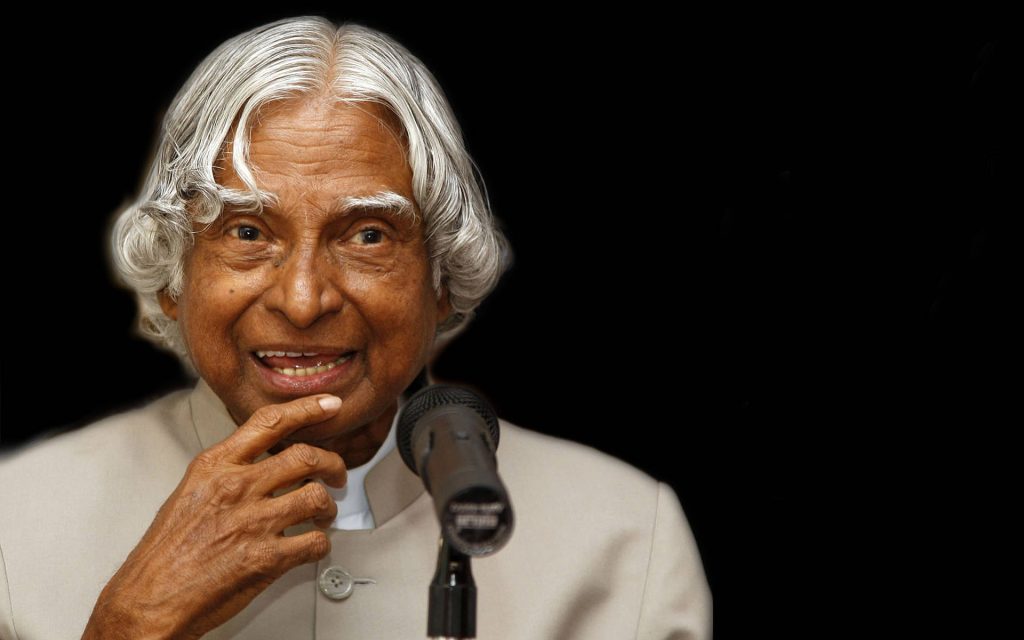Abdul Kalam, also known as A.P.J. Abdul Kalam, was an eminent Indian scientist and politician who made significant contributions to India’s missile and nuclear weapons programs. Born on October 15, 1931, in Rameswaram, India, he played a crucial role in shaping India’s defense capabilities. Kalam’s passion for science, his unwavering dedication, and his vision for a technologically advanced India earned him the title of the “Missile Man.” This article explores the life, achievements, and impact of A.P.J. Abdul Kalam, a remarkable individual who left an indelible mark on India’s scientific and political landscape.
1. Introduction: Early Life and Education
A.P.J. Abdul Kalam was born and raised in Rameswaram, a small town in Tamil Nadu, India. He displayed a keen interest in science from a young age. After completing his school education, he pursued a degree in aeronautical engineering from the Madras Institute of Technology. This educational background laid the foundation for his future endeavors in the field of aerospace and defense.
2. Contributions to India’s Missile and Nuclear Programs
After his graduation, Kalam joined the Defense Research and Development Organisation (DRDO) in 1958. His work at DRDO involved the development of missiles and other defense technologies. In 1969, he moved to the Indian Space Research Organisation (ISRO) and served as the project director of the SLV-III, India’s first indigenously designed and produced satellite launch vehicle.
Kalam’s brilliance and dedication resulted in several successful missile projects, including the Agni missile series. These accomplishments earned him the nickname “Missile Man” and solidified his position as a leading scientist in India.
3. Leadership Roles in Defense Organizations
Throughout his career, A.P.J. Abdul Kalam held significant leadership positions in various defense organizations. From 1992 to 1997, he served as the scientific adviser to the defense minister. In this role, he provided expert guidance and contributed to the advancement of India’s defense capabilities.
Kalam also served as the principal scientific adviser to the Government of India from November 1999 to November 2001. His expertise and strategic thinking played a vital role in shaping India’s defense policies and technological advancements.
4. Vision for a Transformed India
A.P.J. Abdul Kalam was not only a scientist but also a visionary. He firmly believed in the power of technology to transform India into a developed nation. In 1998, he presented a comprehensive plan called “Technology Vision 2020,” which outlined the path for India’s progress in various sectors, including agriculture, education, and healthcare. This roadmap aimed to bridge the gap between a developing nation and a developed society.
Kalam’s vision emphasized the importance of innovation, scientific research, and technology-driven growth. He strongly advocated for harnessing the potential of young minds and creating an ecosystem that nurtures creativity and entrepreneurship.
5. A.P.J. Abdul Kalam as President of India
In 2002, A.P.J. Abdul Kalam was elected as the 11th President of India. Despite his scientific background, he brought a fresh perspective to the largely ceremonial role. Kalam’s presidency focused on inspiring the youth, promoting education, and fostering scientific temper in the nation.
During his tenure, he actively engaged with students and delivered numerous lectures to motivate them to pursue scientific and technological pursuits. His humility, simplicity, and accessibility endeared him to the people of India, making him one of the most popular presidents in the country’s history.
6. Post-Presidential Life and Legacy
After completing his term as the President of India in 2007, Abdul Kalam continued his mission to inspire and educate. He served as a visiting professor at various universities and institutions, sharing his knowledge and experiences with students and researchers.
Kalam’s contributions extended beyond science and technology. He authored several books, including his autobiography, “Wings of Fire,” which became immensely popular and inspired millions of readers. His writings encapsulate his journey, ideals, and thoughts on transforming India into a knowledge-driven society.
7. Awards and Recognitions
A.P.J. Abdul Kalam received numerous awards and honors for his exceptional contributions. He was awarded the Padma Vibhushan in 1990 and the Bharat Ratna, India’s highest civilian award, in 1997. These accolades recognized his immense impact on India’s scientific and technological advancements.
Conclusion
A.P.J. Abdul Kalam’s life and achievements exemplify the power of knowledge, dedication, and visionary leadership. As the “Missile Man of India,” he played a pivotal role in bolstering India’s defense capabilities. His vision for a transformed India, driven by science and technology, continues to inspire generations.
Abdul Kalam’s indomitable spirit, humility, and love for the country made him a beloved figure in India and an inspiration for people worldwide. His legacy lives on through the countless lives he touched and the progress he ignited.
Read More: Sandeep Maheshwari: A Motivational Journey of Inspiration and Success
Frequently Asked Questions (FAQs)
Q. What were A.P.J. Abdul Kalam’s major contributions?
A. A.P.J. Abdul Kalam made significant contributions to India’s missile and nuclear programs. He played a key role in the development of the Agni missile series and India’s satellite launch vehicle, SLV-III.
Q. What was A.P.J. Abdul Kalam’s vision for India?
A. Abdul Kalam envisioned a technologically advanced India. His “Technology Vision 2020” laid out a roadmap for transforming India into a developed society through innovation, education, and scientific research.
Q. What awards did A.P.J. Abdul Kalam receive?
A. A.P.J. Abdul Kalam received several awards, including the Padma Vibhushan in 1990 and the Bharat Ratna in 1997, India’s highest civilian award.
Q. What is A.P.J. Abdul Kalam’s most famous book?
A. Abdul Kalam’s autobiography, “Wings of Fire,” is his most famous book. It chronicles his life journey and provides insights into his vision for India’s development.
Q. How is A.P.J. Abdul Kalam remembered today?
A. A.P.J. Abdul Kalam is remembered as a visionary leader, a brilliant scientist, and the “People’s President.” His ideals and contributions continue to inspire individuals to pursue excellence and make a positive impact on society.

